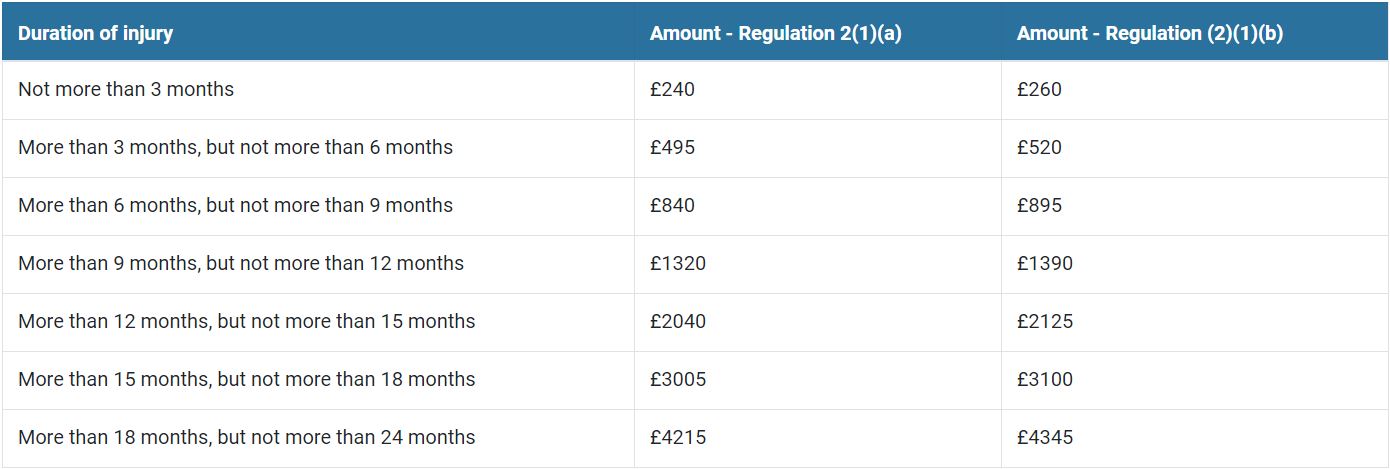On the 31st May 2021 the Government’s whiplash reforms came into force. Without doubt there are confusing times ahead for insurers, customers and brokers alike!
Whiplash Reforms 101
I’m sure we’re all aware that the cost of Motor Insurance has for years been negatively affected by the number of insurer pay-outs for personal injury claims. The UK Government proposed action to stop the rising cost of Motor Insurance by introducing the Whiplash Injury Regulations (aka ‘Whiplash Reforms’) as part of the Civil Liability Act.
In a nutshell these reforms have been created in order to;
- Reduce the number of false or exaggerated whiplash claims.
- Reduce whiplash claims being settled without a medical assessment.
The MIB (Motor Insurers Bureau) stipulates that these reforms “will reduce premiums for all motorists, whilst ensuring claimants continue to receive proportionate compensation for their injury [..] The rise in the small claims limit requires the creation of a new service for consumers to help them make a claim without legal support, and this is why Official Injury Claim has been created.”
These reforms include some changes, including;
- Fixed fee damages for whiplash claims.
- Increasing the financial limit of claims (currently managed through the ‘small claims track’) from £1,000 to £5,000.
The impact on whiplash victims can of course be significant, and the Government has been working with the MIB to find a solution suitable for individuals to arrange their own claims instead of relying on legal representatives. A new portal has been launched called the ‘Official Injury Claim‘ – where the claimant will be able to liaise directly with the at-fault party’s insurance company in order to seek compensation.
Here are details of the compensation tariff;

How does this impact customers?
Any customer that contacts a broker’s claims line will, from the 31st May, be managed slightly differently. If a customer has been injured, and desires compensation against the at-fault party, the questions asked, and advice given will need to change.
Any customer can make a claim through the portal themselves, however they must;
- be 18 or over;
- have had the accident in England or Wales;
- have had the accident on or after the 31st May 2021;
- have been inside a vehicle; “vulnerable road users” are not included such as pedestrians, cyclists;
- believe the accident was not their fault.
At the moment, the guidance maintains that the customer should be advised of these options in receiving compensation:
1 – They can be referred to the ‘Official Injury Claim’ portal, where they can directly liaise with the at-fault party to reach an agreement.
2– If they don’t have BTE LEI (Before the Event, Legal Expenses Insurance), they can be handed over to a law firm who will assess the situation, and pursue a claim via the portal (for a percentage of the damages recovered).
3– If they do have BTE LEI, they will also be handed over to a law firm, who will again assess the situation within the portal, however their costs will be indemnified by the LEI policy.
If they choose option 1, the process is fairly straightforward, with the portal briefly explaining how the process will function. It is important to note however, that if the at-fault party disputes your customer’s claim, and they have chosen not to have legal representation, they may need to represent themselves.
In order to submit an unrepresented claim through the portal there are five stages. The customer will need ID, as well as validation checks. It is important to remind your customer that they have a legal right to seek independent advice and guidance, should they want it.
How will these reforms affect brokers?
It’s very likely brokers will unfortunately lose income following the launch of this portal. Most brokers create significant revenue through profit share type agreements with partners they have outsourced elements of their claims handling to. The impact of these reforms could mean a loss of 80% of the legal service income, and since up to 50% of the claim’s income is taken from the legal element of the claim this could hugely impact some brokers.
The reforms mean that a claimant who wants legal representation for a personal injury claim under £5,000 has to fund their own legal costs. Inevitably, any resulting pay-out is likely to be reduced.
Customer relationships are also at stake. The portal, although innovative and useful in many ways, creates an intervention between you and your customer. It is important to protect the customer, as well as their claims journey by effectively managing the claims reporting channels, and providing brilliant independent advice. This will not only ensure your customer feels protected, but prepared in their journey with the at-fault party in the portal.
Insurers have long been campaigning for these reforms, but most admit that the impact on customers and the industry is unclear until it is tested. Ultimately, the insurer and the broker share a mutual customer and it will be more important than ever to work in close collaboration with insurers to ensure a smooth journey and swift favourable outcome for the insurer.
Make sure;
– Your documentation is up to date, so your customers are in the know, and returning customers understand the new process.
– Your claims reporting channels are slick, and the advice you are giving is on point throughout your support team.
–Educate customers on the need for early notification for a smooth and swift outcome. Insurers now have strict timescales to report liability so this is more important than ever.
– Talk to your incumbent provider and establish their strategy to limit the revenue impact. With a shift of focus away from legal services your incumbent needs to be able to manage other elements efficiently.
Find more information on the Government website here.


